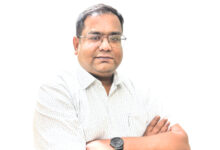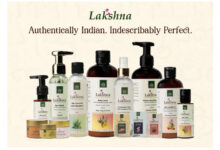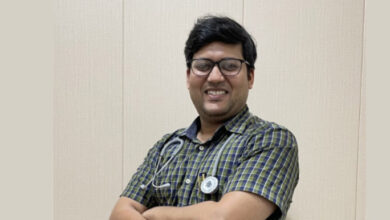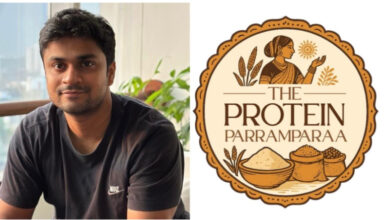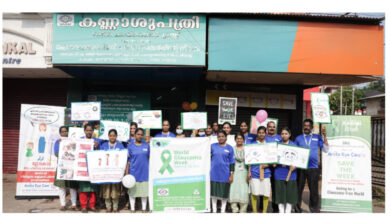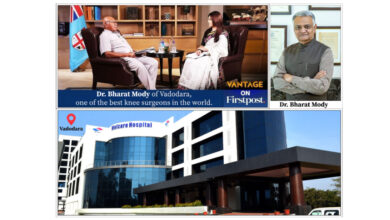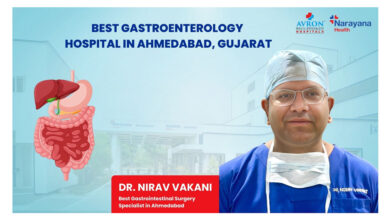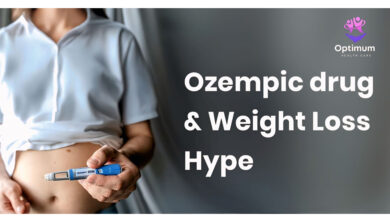27.5 mn couples in India are victims of infertility, the numbers rising with the declining fertility rate at 2.1 births per couple!
Oasis Fertility observes National Infertility Awareness Week to build awareness about infertility problem
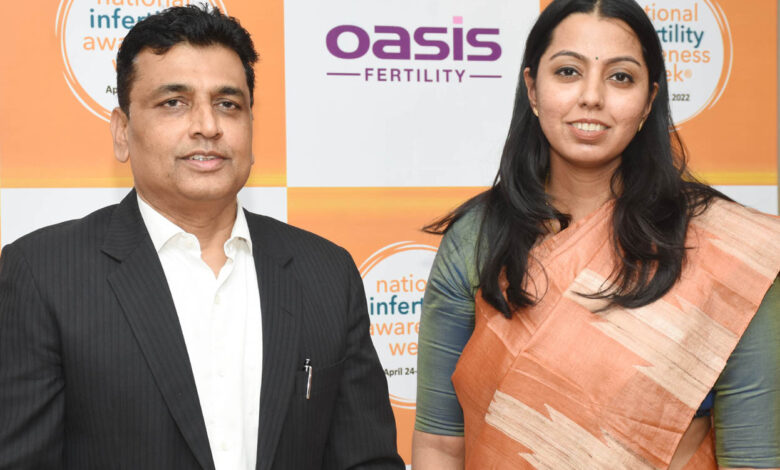
- South India has a dismal fertility rate of 1.7 births per couple
- Fertility rate declining in rural men due to pesticide exposure
Hyderabad, 28th April 2022: Infertility is a hush-hush topic even today amidst the advancements in science and technology. Almost 15% of the Indian population face infertility but hardly 3% seek assistance from a fertility specialist. While the awareness about treatment possibilities and personalized solutions is low on the one side, there is a lack of care, support, and compassion from friends, family, and society on the other side. Infertility affects a couple physically, mentally, and psychologically as well. Empathizing with such couples and offering a safe and sensible platform that can motivate and lift their spirits is the need of the hour.
Although National Infertility Awareness Week®, (NIAW) is a movement, founded in 1989 by RESOLVE: The National Infertility Association, based in the US, its mission is to empower and change the conversation around infertility.
“We are organizing Wear Orange campaign by offering Orange Gear like Wristbands, Keychains, etc., to encourage the couple to have a conversation about infertility. Also planned are creating high digital awareness of Infertility through Live shows and dissemination of content related to infertility.”
Mr Sudhaker Jadhav – Chief Operating Officer, Oasis Fertility opined that “Today in India, it’s time to be vocal about infertility. 10 to 15% of Indian population is silently suffering from infertility, one in six couples is going through this infertility issue, 27.5 mn couples in India are victims of infertility. The problem is no more an urban phenomenon, there is a steady rise in the rate of infertility in rural areas off late, therefore it can’t be an issue of rural taboo, couples need to drop their inhibitions and come out of the shell. It’s extremely important for all of us to know that the Total fertility rate in India has been steadily declining since the last 30 years, it was around 4.0 births per couple in the 1970s and now it’s a dismally 2.1 and in a certain state of the country like Telangana, AP Maharashtra, Tamil Nadu and Karnataka it is as low as 1.7 births per couple. This is fundamentally due to lifestyle issues, late marriages and postponing of parenthood. If this trend continues, 40 years down the line we will be staring at only old population without the addition of young population which is quite detrimental to the society and economy of this country in the future. Another pattern being observed is the rise of male fertility, 50% of the fertility problem is male. In the rural areas its rampant among men due to pesticide exposure. Oasis has male fertility clinic to address the rising male fertility problems.”
In our Internal study, we have seen a steady rise in Tier 2 Towns rather than Tier 1 Towns, primarily due to pesticide issues and male fertility rising. One of the reasons why we have launched this initiative is to bring awareness in tier 2 towns where there is a huge social taboo around Infertility.
“We are observing this week by doing different activities to spread awareness among the society to act fast and reach out to the fertility clinic as the window of opportunity of having a biological child keeps diminishing as the age increases,” adds Mr Sudhaker Jadhav.
Speaking on the occasion Dr Parinaaz Parihar, Clinical Head & Fertility Specialist at Oasis Fertility stated that “Oasis Fertility has always been at the forefront in sharing the right knowledge, care, and guidance about infertility through doctor-patient interactions, consultation camps, and digital campaigns. In observance of National Infertility Awareness Week (NIAW) from April 24th to April 31st Oasis Fertility has lined up a series of activities throughout the week to support those with infertility issues and help them in every possible way to build their families. The best age to get pregnant is before 30 years, but now you have the option, especially for career driven women who want to pursue their career and have the luxury of having a child later for such patients, we have Fertility preservation. There is no best age for IVF, but for ladies up to 50 years and for men up to 55 years they can have IVF treatment. If it is through own eggs the maximum cut off is 45 for ladies, beyond that the egg quality will deteriorate due to age factor.”
In the last ten years, we have observed that the mean age of infertile women in rural areas dropped from 34 to 31 and we see this further deteriorating. For some reason, we are seeing a steady decline in total fertility rate (TFR) in southern states compared to others which is currently at 1.7
Through these initiatives, Oasis Fertility aims to break the barriers that exist in society and also encourage couples to voice their concerns and build meaningful conversations. Some couples have to pass through rough terrain to achieve parenthood and their stories need to be heard patiently without being judgmental. We wish to emphasize the fact that those suffering from infertility need not feel depressed or insecure, and we are here to offer support and guidance in their journey to parenthood”, she added.
ABOUT OASIS FERTILITY:
Oasis Fertility, a unit of the Sadguru Healthcare Services Pvt. Ltd., has redefined reproductive care in India by bringing in internationally recognized best practices and protocols in Fertility treatments. It offers would-be parents a friendly ‘one-stop’ day-care clinic where consultations, investigations, and treatment are all conducted under one roof. Since its inception in 2009, Oasis has gained an excellent reputation for its high success rates driven by its high-quality services led by a team of experienced infertility specialists with international experience. The chain has expanded to 24 centres across the states of Andhra Pradesh, Telangana, Tamil Nadu, Karnataka, Jharkhand, Gujarat, Maharashtra, and Odisha.

